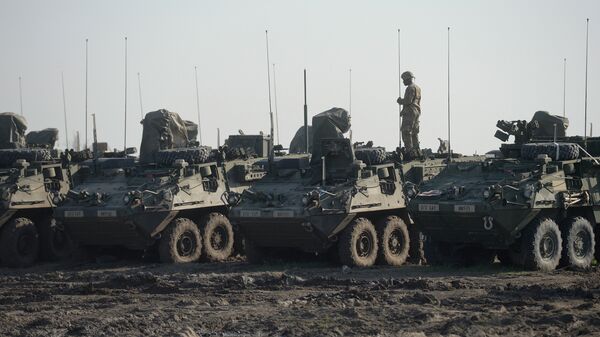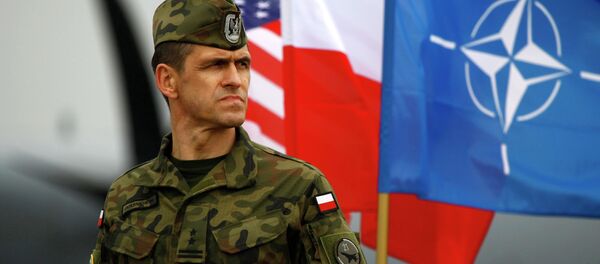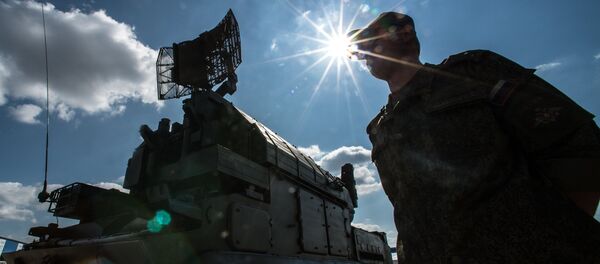Europe is very close to a major war for the first time since the end of the Second World War, Jens Jorgen Nielsen writes in his blog for theDanish newspaper Arbejderen.
After the collapse of the Soviet Union, the residents of its former republics opened their arms to the West and its ideology. Even when NATO started its expansion eastwards, taking in countries of the former Warsaw Pact, the West continued to talk about “growing stability” in the world.
However, this time has irrevocably passed and many contentious issues are now breeding concern.
The Europeans have let themselves become drawn into an ‘insane march on Russia’ so that the US can satisfy its global interests, but this might lead to very catastrophic consequences, the author warns.
Firstly, NATO has concentrated the largest amount of military hardware and military personnel right on Russia’s borders since the end of the Second World War. This can’t but raise Russia’s concerns.
“There is no wonder that the Germans have refused to send their battalion to the Baltics,” the author says.
Secondly, taking into account that George W. Bush withdrew from the Anti-Ballistic Missile Treaty back in 2002, now there are no restrictions prohibiting the deployment of cruise and ballistic missiles on Russia’s borders.
They may be based on NATO warships in the Baltic Sea or in other locations, and it would take the Alliance less than five minutes to hit, for example, Russia's St. Petersburg, the author says.
Some of the Western countries which possess nuclear weapons might cherish illusions that the so-called “defense missiles” are able to neutralize Russia’s long-range strategic nuclear missiles and thus eliminate the so-called “mutual deterrence.”
As s result, the western strategists might be tempted to attack first, assuming that NATO “could win” the nuclear war with Russia. However, in reality this is nothing but a dangerous delusion, as Russia’s weaponry is far more advanced than for example that of Iraq, Nielsen warns.
Republican Ronald Reagan took certain practical steps to initiate nuclear disarmament negotiations with Gorbachev in the second half of the 1980s, but nowadays one can only wonder how Democratic President Obama could have plunged Europe into such a dangerous position.
Therefore, the author says, the Scandinavians should understand that the Democrats are not so good and the Republicans are not so evil, as they always thought.
The author cites another example: it was the Democrat John F. Kennedy, who was very close to triggering a nuclear war because the Soviet Union had installed missiles in Cuba in 1962 within a radius of 90 miles (144 km) of the US.
Nowadays it is a Republican, Donald Trump, who is asking why the US is engaged in so many wars around the world, and why the US has such bad relationship with Russia.
Many of those who do not support Trump, however, are asking the very same questions.
The US perceives Russia and China as the countries which, if not threatening it, prompt seriously questions about its hegemony in the world.
The author then questions who would be the first to pay if there is a nuclear war unleashed on the European continent.
He then forecasts: the first would probably be Scandinavia, Poland or the Baltics.






